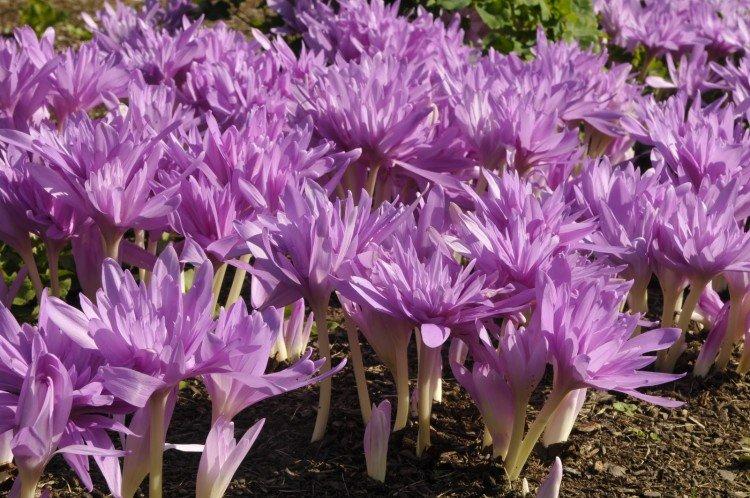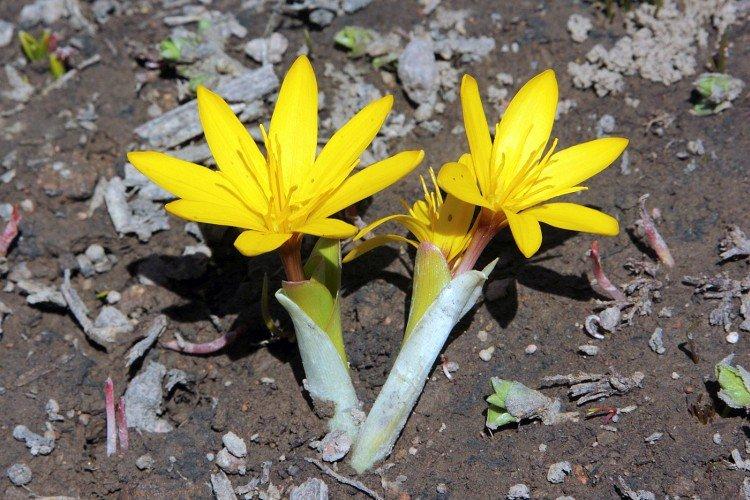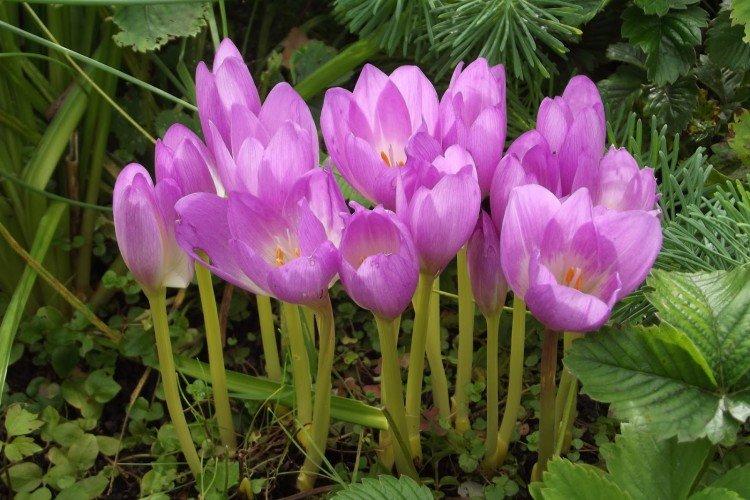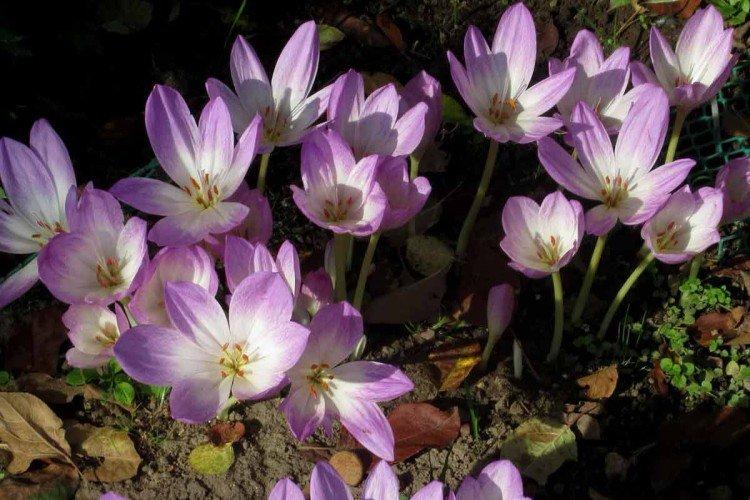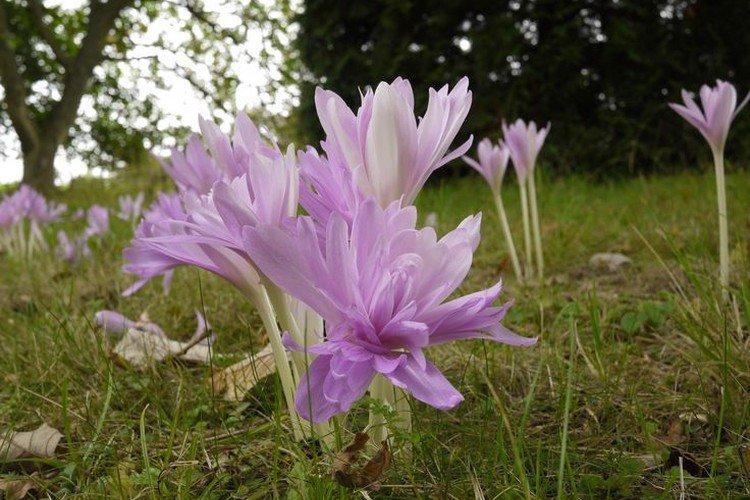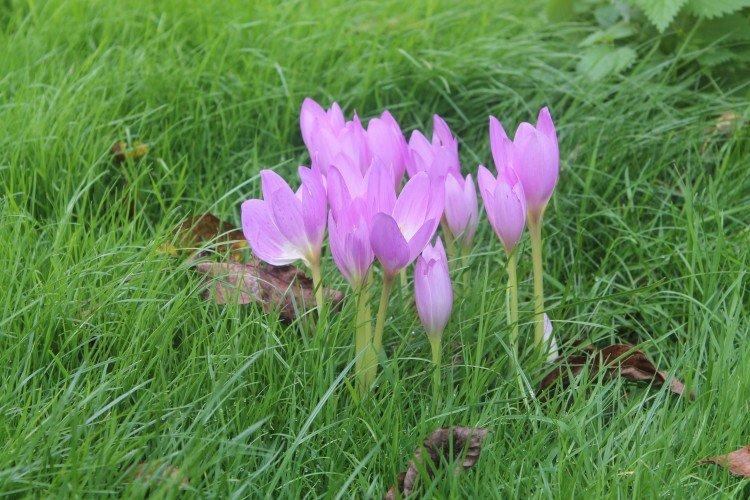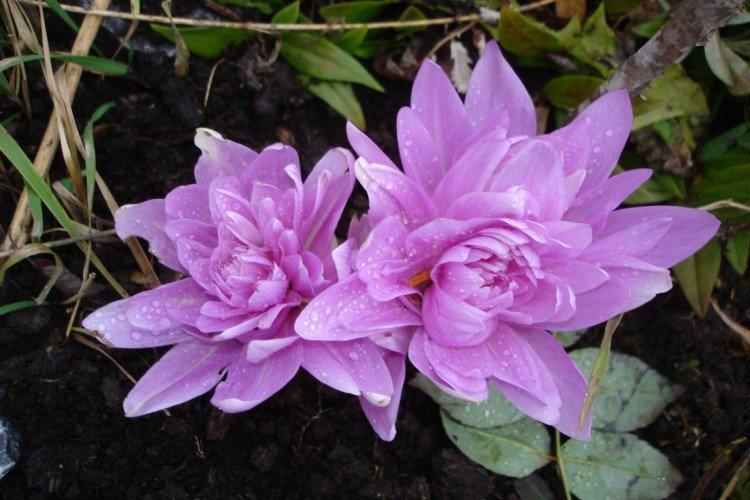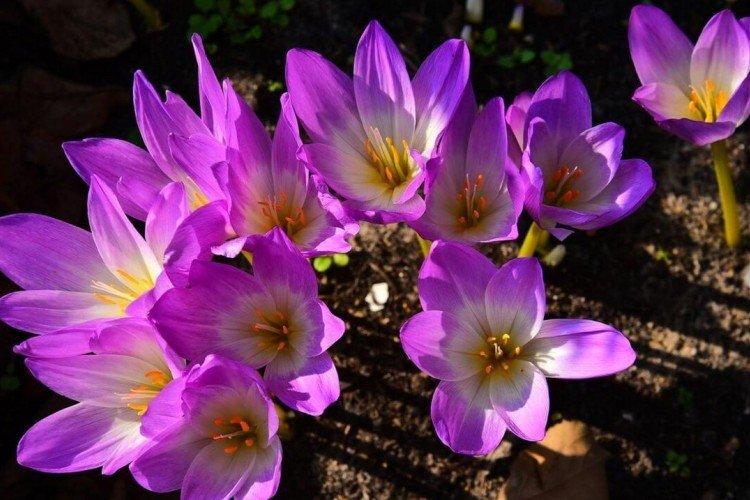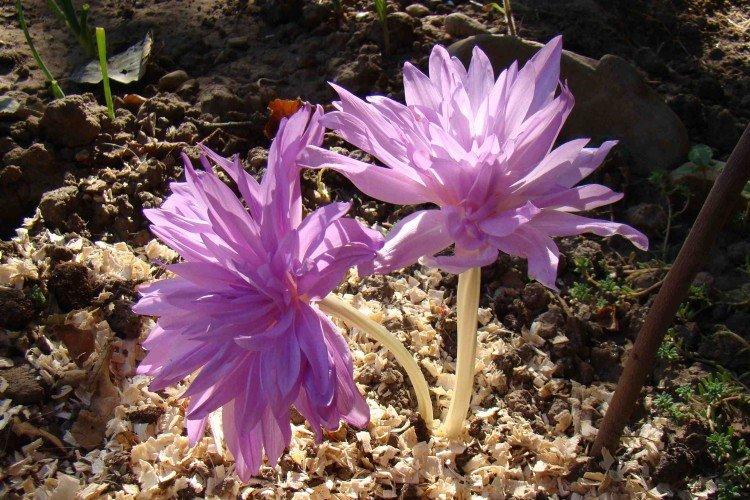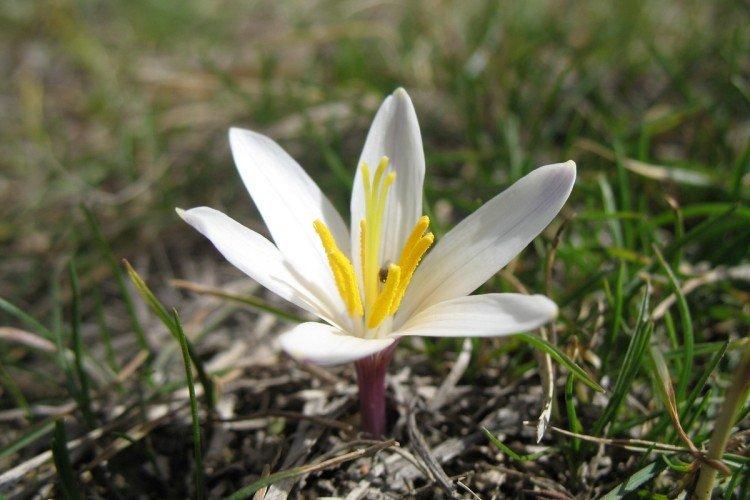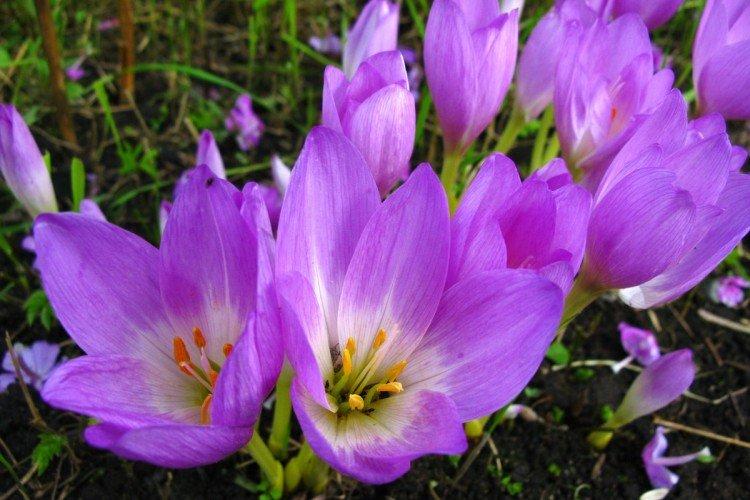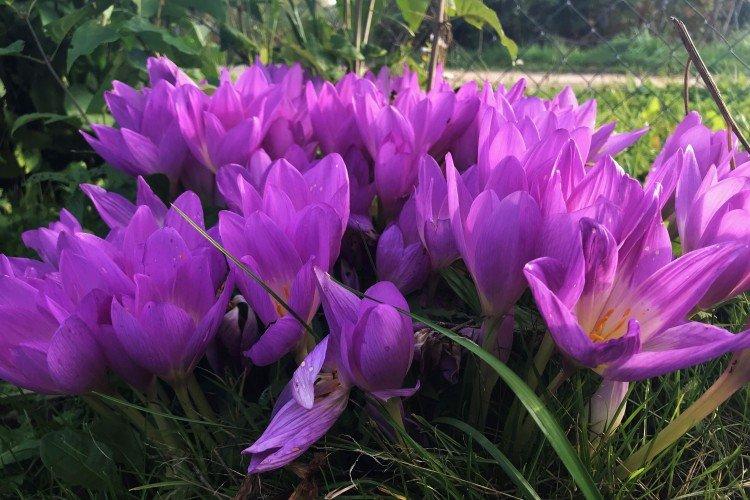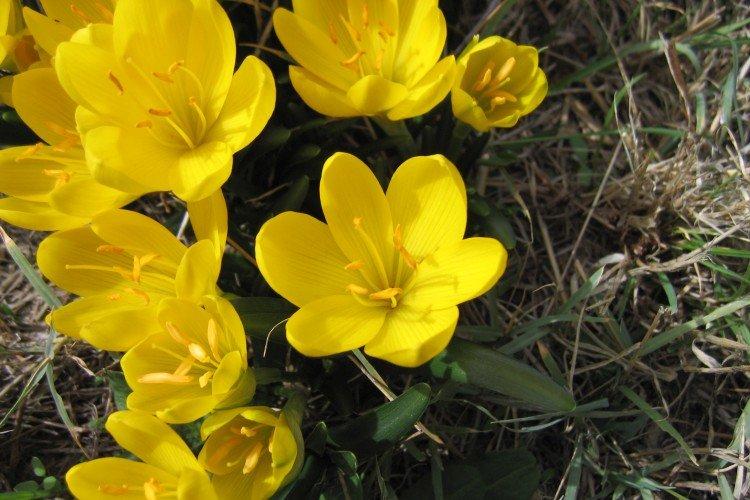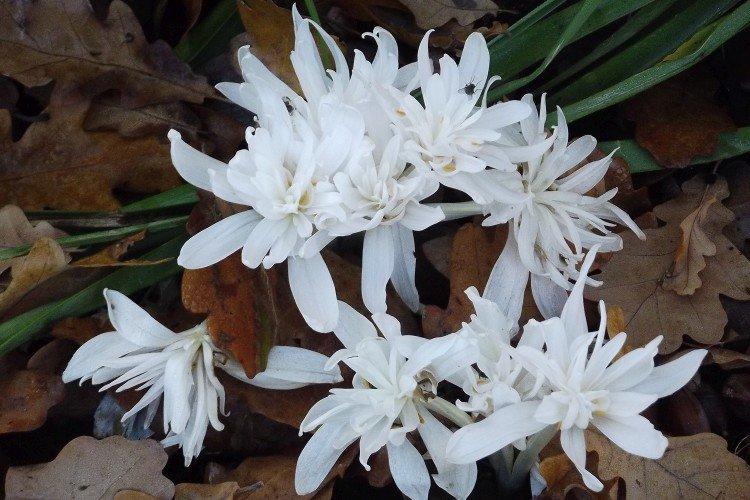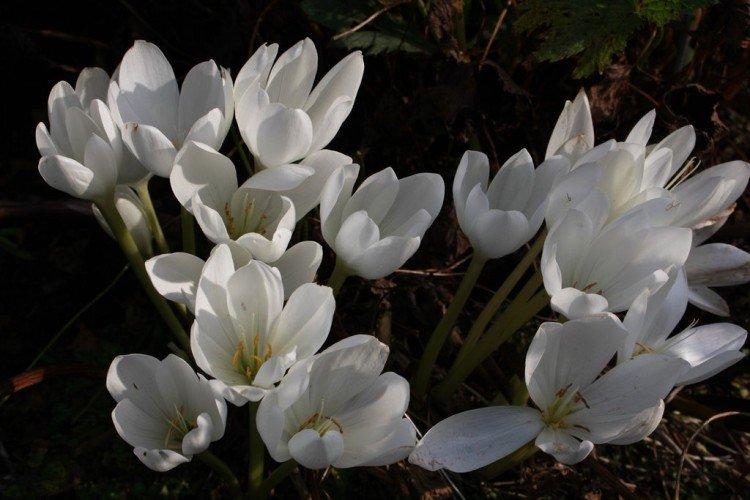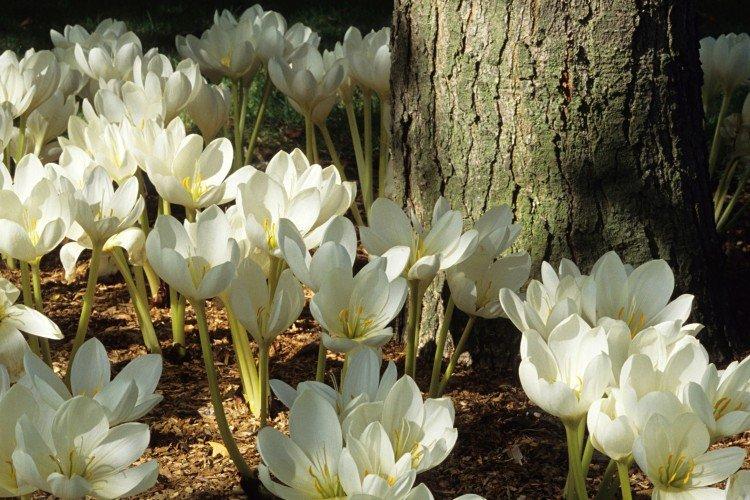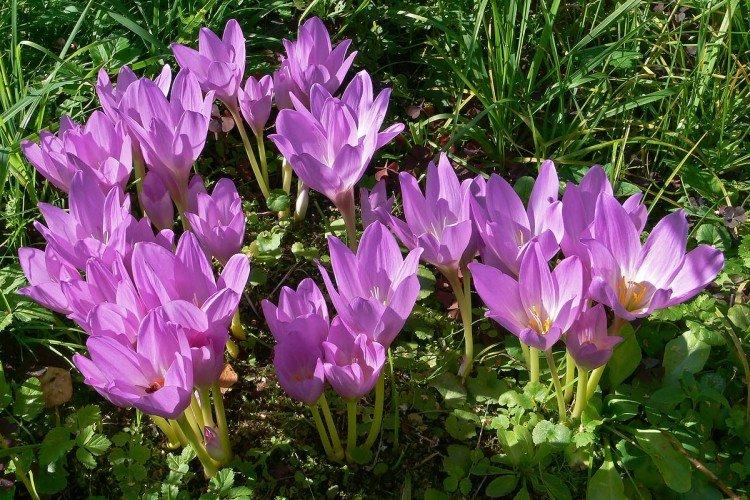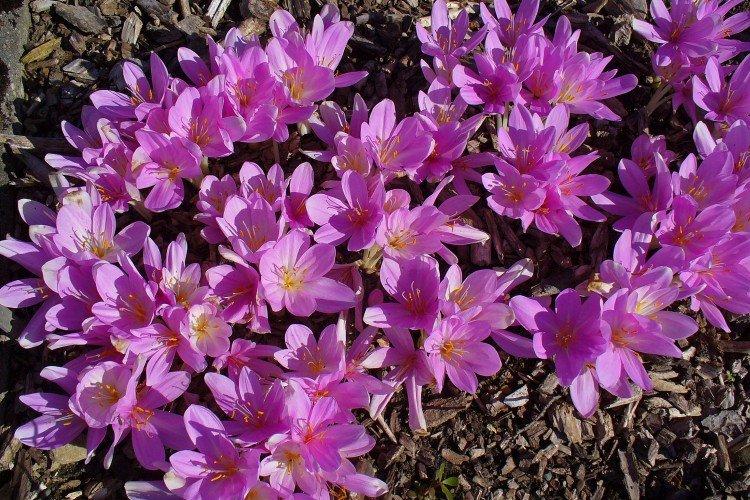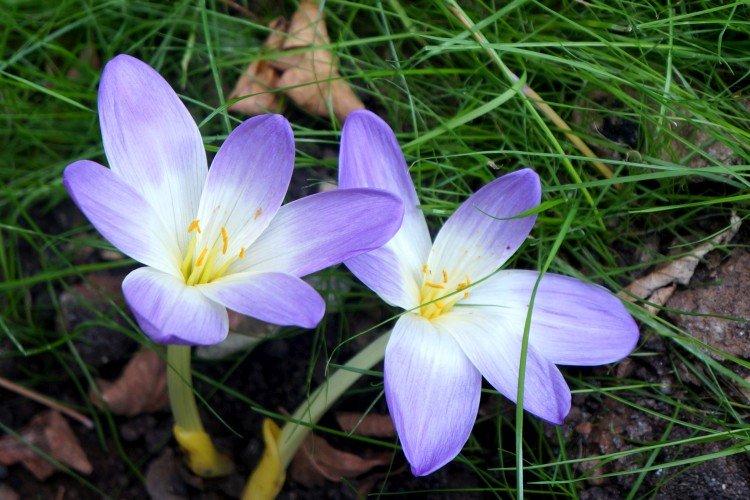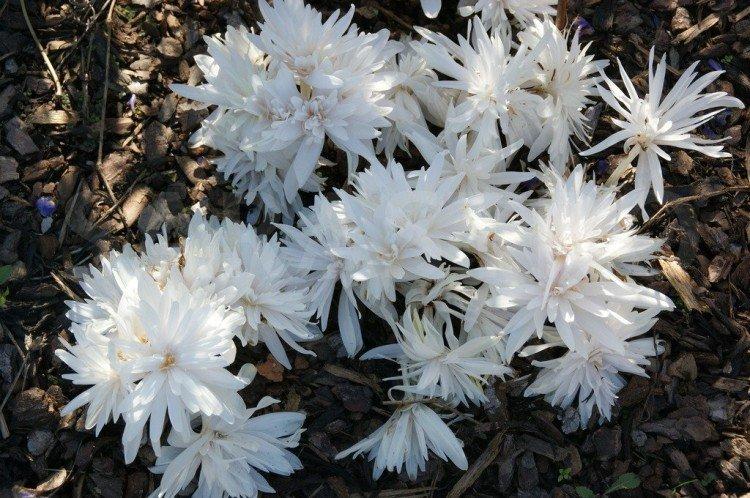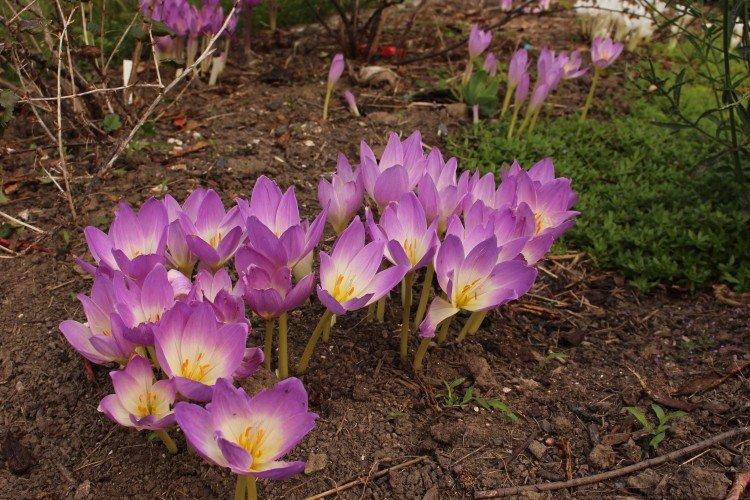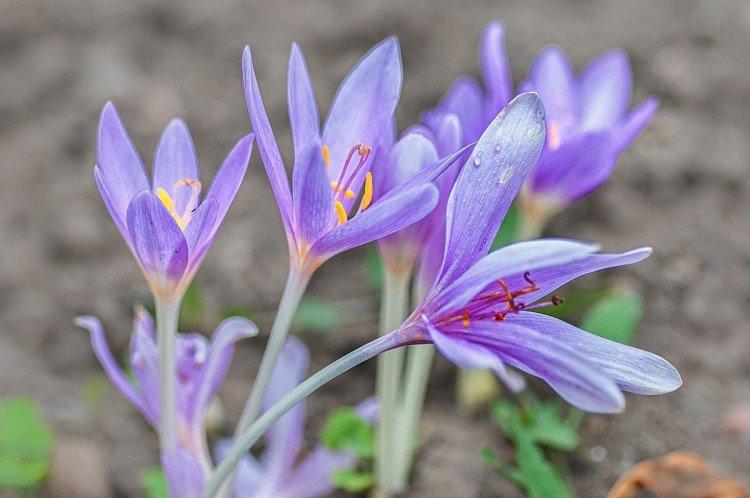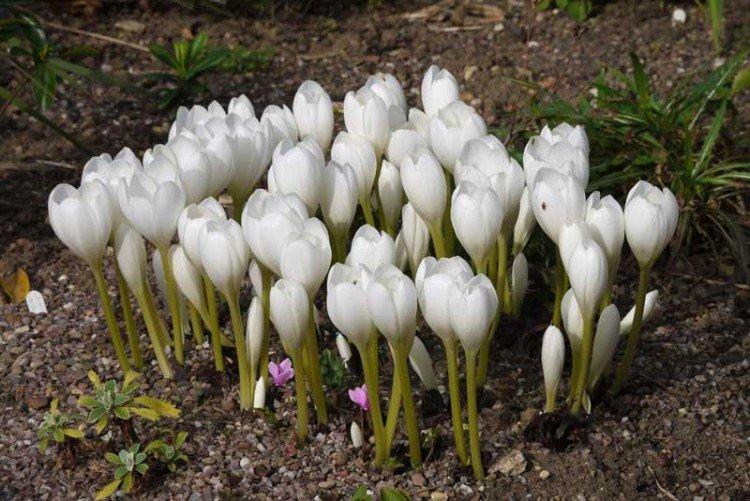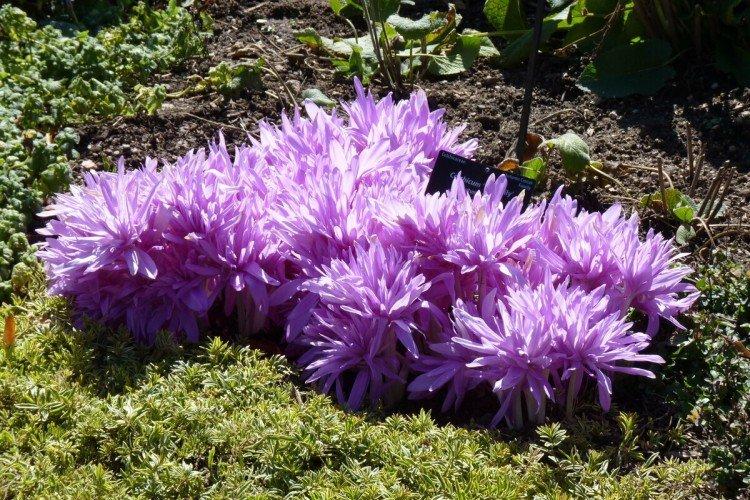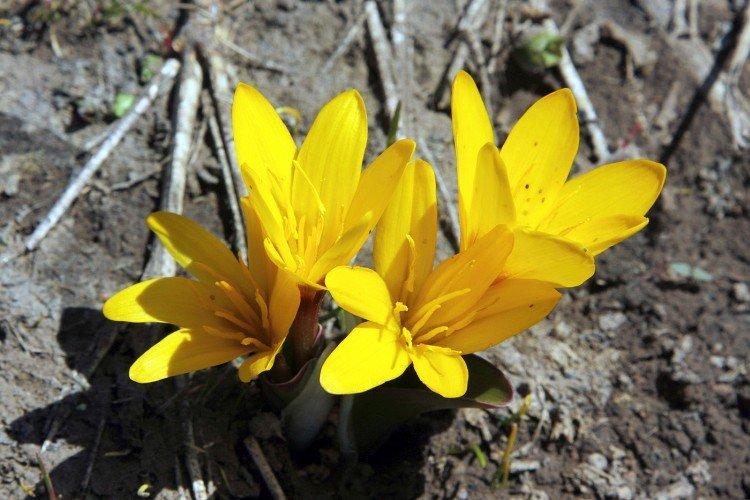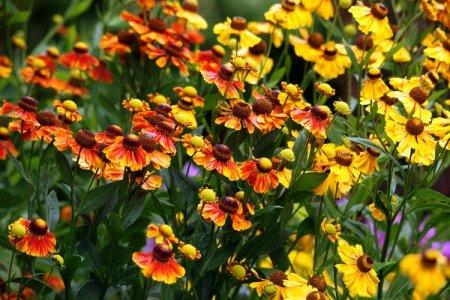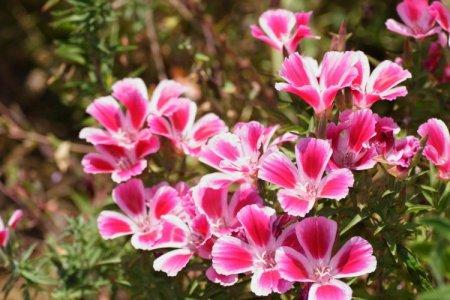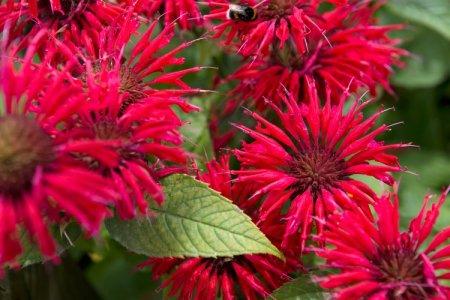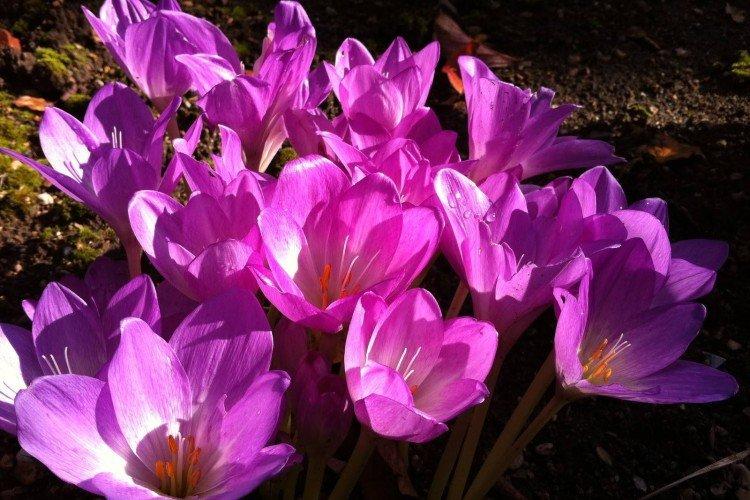
Due to the unusual specifics of growth, the crocus immediately attracts attention in the garden. It seems that bright lilac buds grow directly from the ground without peduncles at all. Some varieties resemble crocuses, but we have already figured out what the difference is and how to care for the crocus!
general information
The second name of the colchicum is colchicum, and because of the timing of flowering, it was nicknamed the autumnal. This is a perennial representative of the family of the same name, which is especially common in Asia and Africa. And also - at the Mediterranean and Black Seas.
Colchicum is a very compact herb that turns into a flowering carpet. It has very short shoots, but relatively long lanceolate leaves. The root system is corms.
Funnel-shaped flowers bloom in spring or fall, depending on the variety. Their length, together with the perianth tube, reaches as much as 20 cm. Remember that the crocus is a poisonous plant.
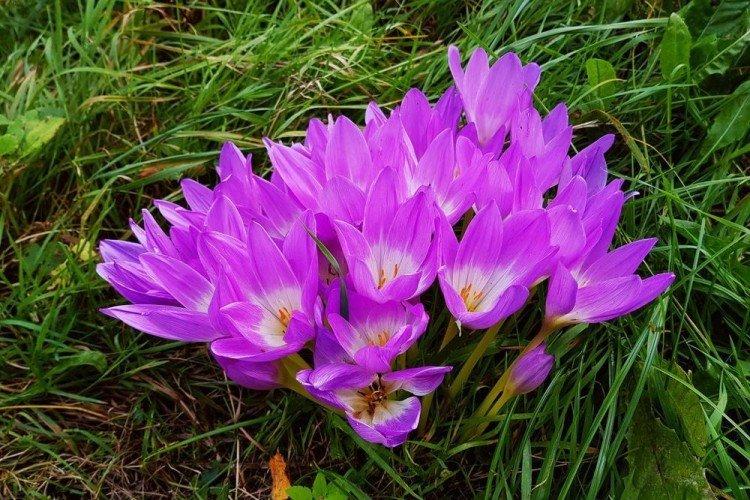
Colchicum species
All croplands can be divided into two large groups - autumn and spring. This directly determines the timing and duration of their flowering season!
White crocus
The most common autumn variety, which, oddly enough, is rarely found in the wild. Each bulb blooms up to 7 flowers up to 15 cm high.
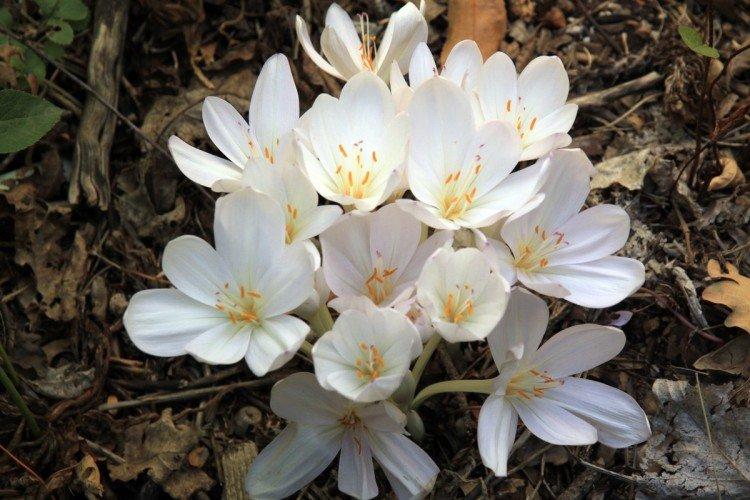
Yellow crocus
The spring species prefers rocky terrain and opens up immediately after the snow melts. The yellow flowers are very small, up to 3 cm in diameter, on compact thin tubes.
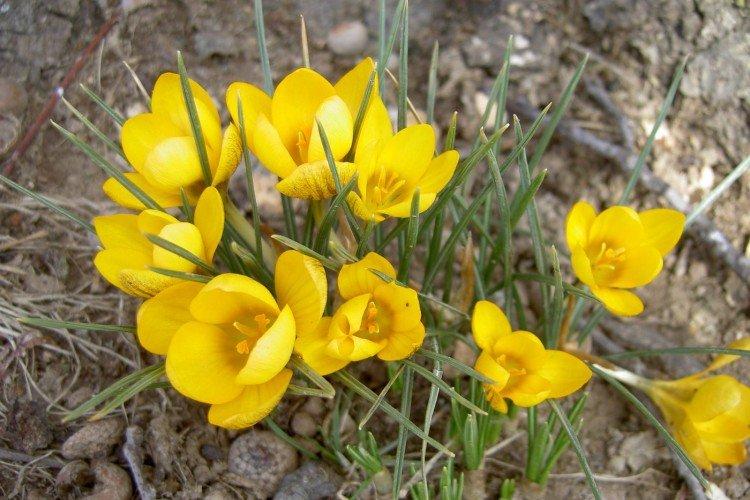
Gorgeous colchicum
Quite a tall species with a total height of up to 50 cm with wide and large leaves. Large flowers on a long white tube are colored white or lilac. There are many other spectacular garden forms.
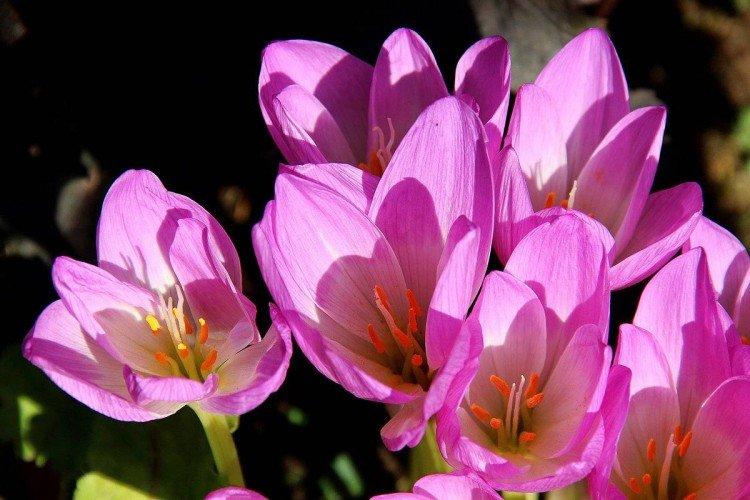
Hungarian colchicum
The snow-white spring look is perfectly adapted to the conditions of the middle lane. Pink varieties with burgundy or purple anthers are very interesting.
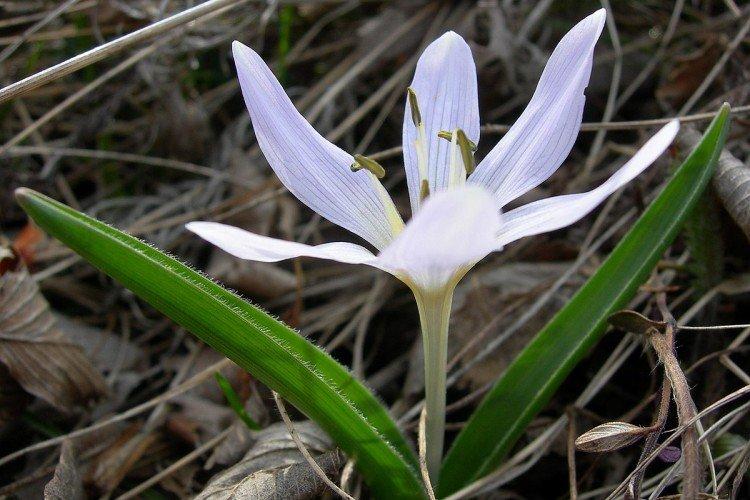
Terry crocus
A very spectacular and unusual autumn view with large purple flowers up to 5 cm in diameter. One bud can count 30-35 petals. It blooms later than everyone else - at the end of October.
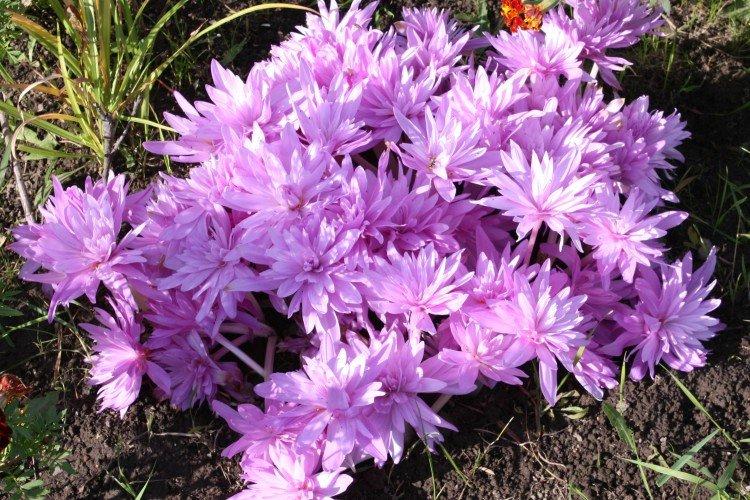
Colchicum Regel
A resident of the alpine regions feels good even on poor rocky soil. Up to 4 snow-white flowers with purple stripes sprout from each bulb.
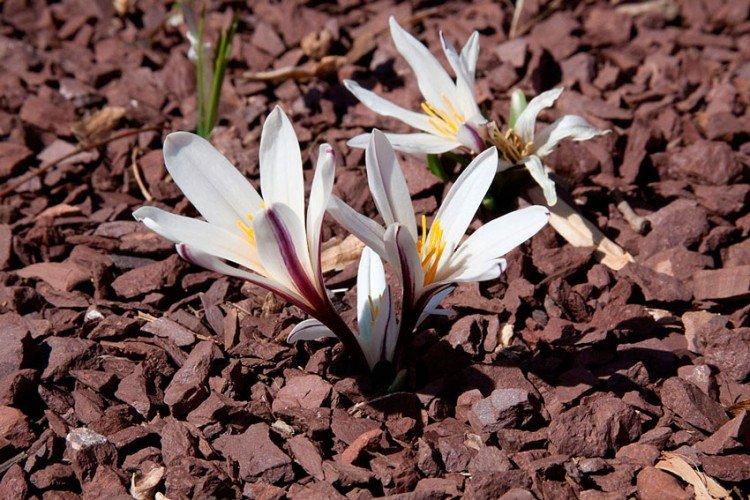
Harlequin care
Colchicum looks unusual, but there are no surprises in caring for it. It is enough only to successfully select a site, fertilize it periodically and regularly get rid of weeds!
Temperature and lighting
Choose bright sunny areas or partial shade. But remember that if the crocus grows under the trees, slugs will often grow on it. Therefore, careful prevention from pests is needed.
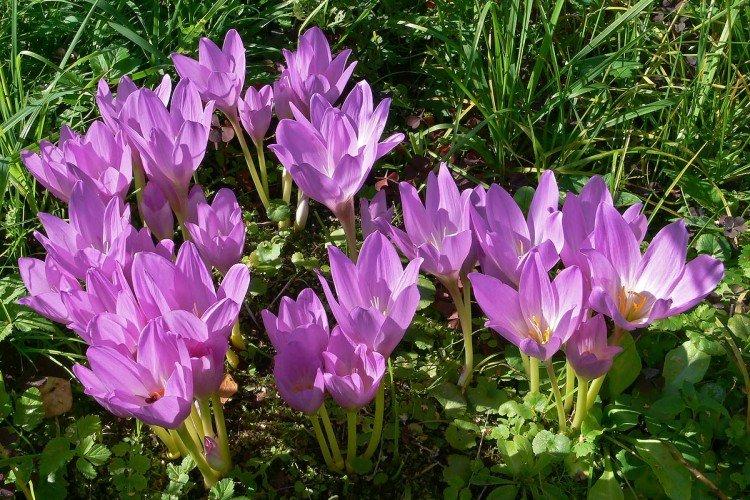
Watering
The crocus needs additional watering only during flowering and only during prolonged drought. The rest of the time it has enough natural moisture and precipitation.
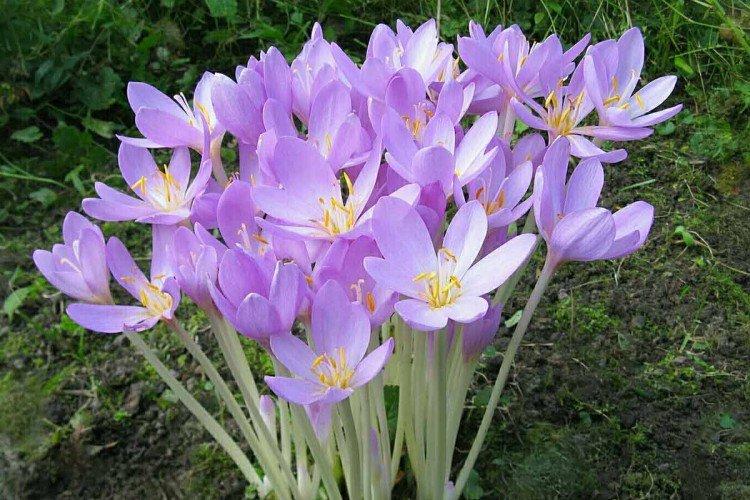
The soil
Colchicum lives in almost any soil, including moderately moist clays, acidic and alkaline soil. The only thing that he does not tolerate is excessive humidity and close occurrence of groundwater.
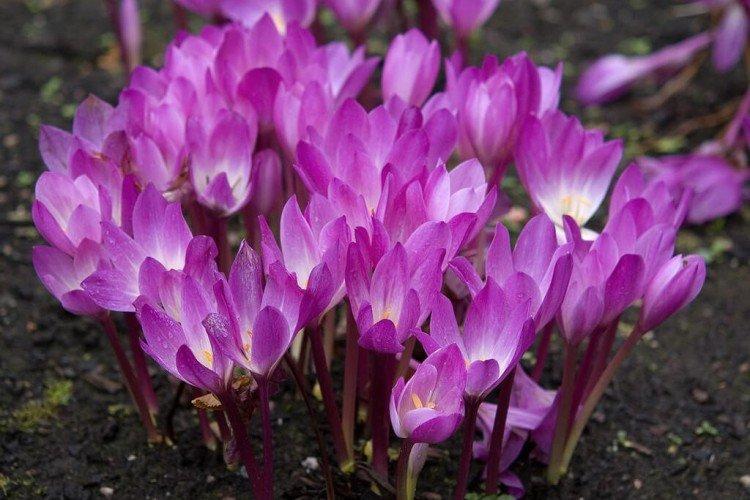
Fertilizers and feeding
During the season, 2-3 additional fertilizing with complex fertilizers with nitrogen is needed. Use liquid formulations while watering, but halve the recommended concentration. In the fall, you can add compost to the soil.
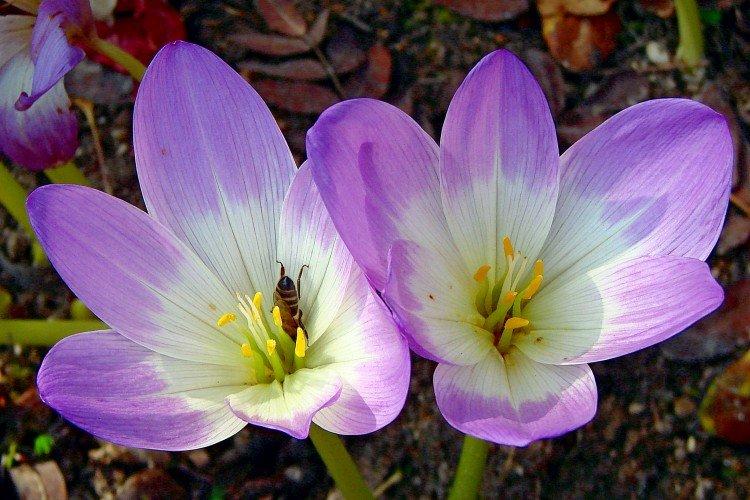
Transfer
In one place, the crocus grows up to 6 years, but still we advise you to transplant it more often, because the bulbs are actively growing, which is why decorativeness suffers. The bulbs are transplanted at rest, along the way, separating the children. If the crocus does not bloom, this is a sure sign that it is time to take care of them.The small bulbs are dried and planted the next year.
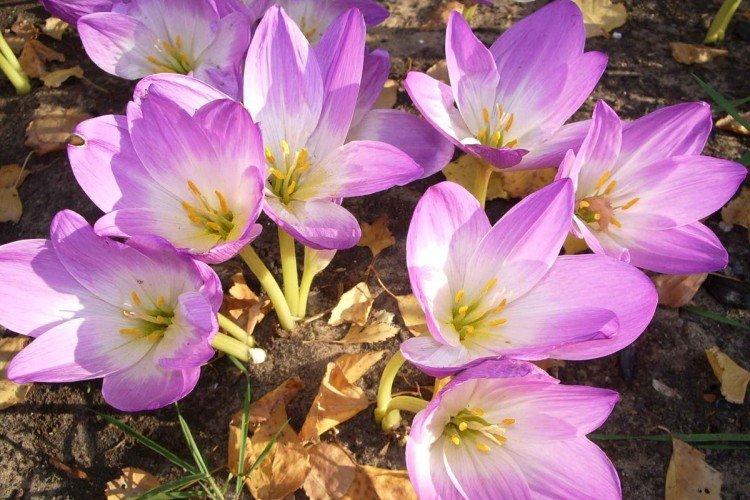
Wintering
Almost all varieties of colchicum hibernate without problems in the ground and do not require additional preparation. Only some decorative species, most often terry, are more sensitive and need shelter.
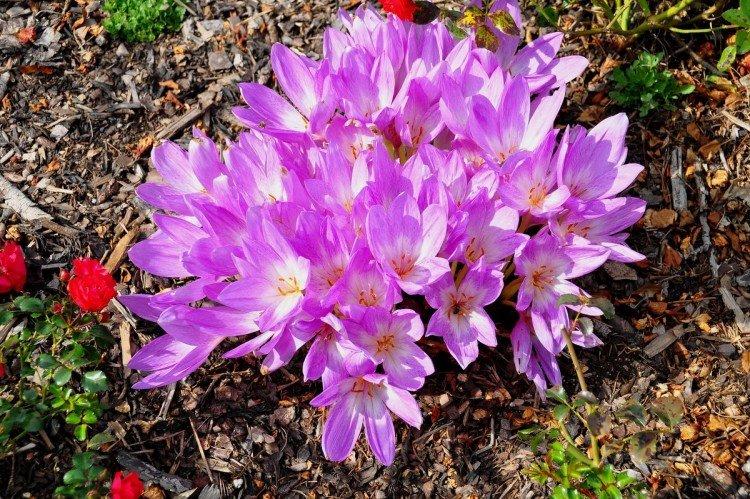
Planting and breeding colchicum
In everyday life, the crocus is not propagated by seeds, because this way it will have to wait another 6-7 years for its flowering. Therefore, we recommend using bulbs. They are planted in August in groups, but at a distance of about 15 cm. The depth of the holes is 8-20 cm, depending on the size of the bulbs.
When planting the bulbs, add some ash and phosphates to the holes. The small tubes formed by the scales should remain above the ground - these are the ones from which the buds will appear. Healthy plants bloom 1.5 months after planting.
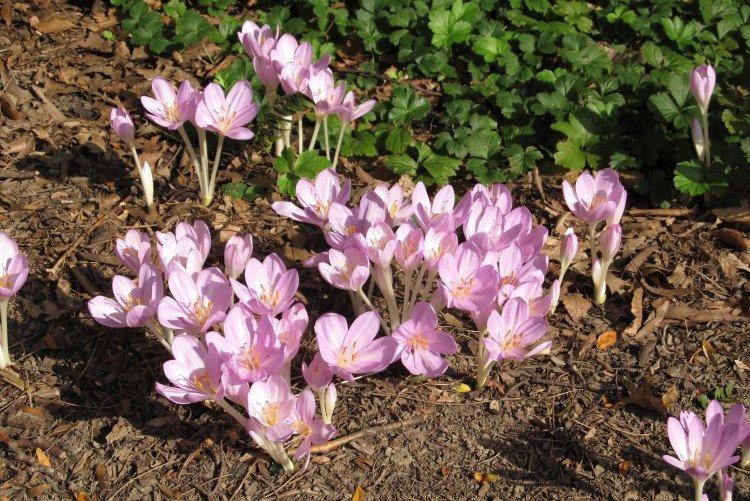
Pest and disease control
Colchicum is very fond of slugs and snails, which are attracted by juicy leaves and moisture. You must first get rid of them mechanically, and then use special preparations. Household life hack - small gutters with water around the flower bed. Pests simply cannot overcome them.
Of the diseases, the plant most often suffers from fungus and rot due to waterlogging. With a weak lesion, cut off the diseased parts of the flower and treat with fungicides. With a large one, it is better to get rid of the diseased plant completely.
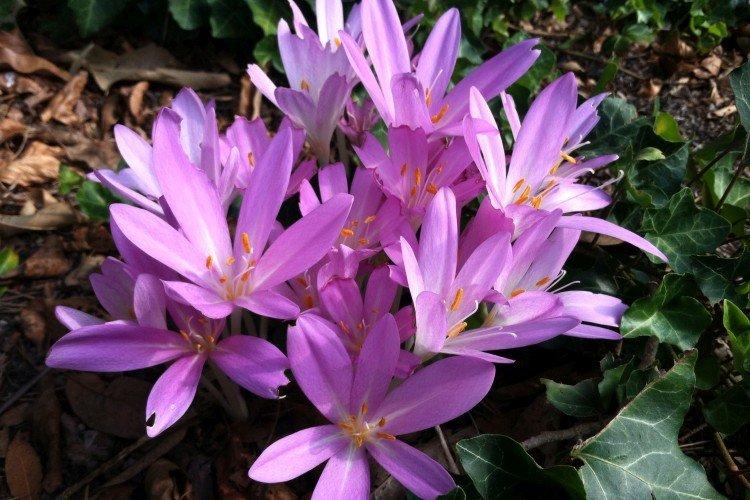
Colchicum - photo
Column plantings in groups look very original and unusual. They can be used to plant entire areas, a tree trunk circle, or use them in complex landscape compositions.
